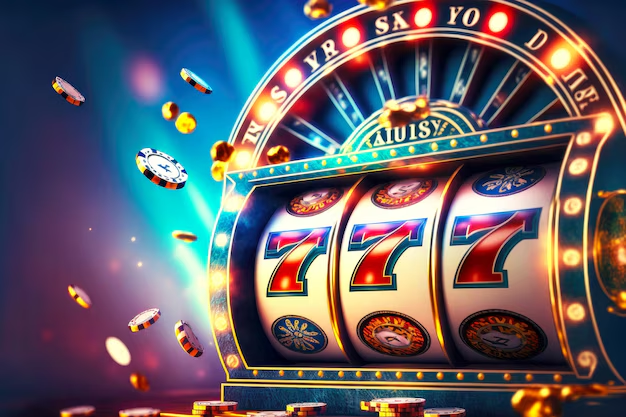Even while every slot machine spin seems to be determined by chance, there is a carefully considered mathematical basis behind the flashing lights and captivating sounds. The casino’s statistical edge and the estimated return a player might expect over time are determined by these two factors. Even though they may appear to be diametrically opposed, any slot gacor player who wants to make wise choices must comprehend how they complement one another.
The results of a single session are not immediately reflected in the house edge and RTP. Rather, they are statistical averages over a lengthy period, derived from millions of spins. The overall design of the game ensures that the casino maintains its advantage over time, even if each result is determined by a random number generator (RNG), which ensures fairness in every spin.
What is the edge of the house?
The house edge is the portion of total slot machine wagers that the casino anticipates keeping as profit. For instance, if a slot machine has a 5% house edge, the casino is statistically expected to retain ₹5 for every ₹100 wagered over a long period of time. This amount, however, is a long-term measure intended to ensure profitability for the operator and does not necessarily mean that a player will lose precisely 5% in a brief session.
As an inherent insurance, the house advantage is a crucial component of casino architecture. It’s the statistical system that confirms the casino’s earnings stay positive over time, regardless of how many jackpots are awarded or how many lucky streaks happen. These house margins range from 2% to 15%, depending on the slot machine’s design, payout structure, and volatility.
RTP Definition and Operation
The opposite of the house edge is the Return to Player (RTP) percentage. It is the possible percentage of wagered funds that a slot machine ultimately returns to players. When a slot machine offers a 96% RTP, it means that for every 100 naira wagered, the game should return 96 naira in prizes, with the casino’s edge being represented by the remaining naira. RTP + House Edge = 100%, to put it simply. It’s crucial to keep in mind that RTP does not forecast immediate results. In a single session, players could win more or less than the anticipated return. It is only after dozens or millions of spins that the figure becomes accurate.
Why Casinos Continue to Have an Advantage
This benefit results from the fact that RTP is always less than 100%, which means that the house edge is influenced by a fraction of each wager. The overall payment and probability structure benefits the casino overall, even when players win big. This does not imply that gambling machines are unjust or manipulated. Modern slot gacor games are governed by stringent gaming regulations that demand openness and fairness. Random number generators guarantee unpredictability, but the mathematical architecture and payout tables ensure that the casino’s edge typically lasts.
How Slot Volatility Affects RTP and House Edge Perception
Beyond the straightforward correlation between RTP and house edge, volatility, or variation, there is another important consideration. The volatility of a slot machine determines how frequently and how much it pays out. High-volatility slots are riskier but more exciting because they yield fewer but larger wins. Gamers who like steady gameplay may find low-volatility slots appealing because they offer lower but more frequent payouts.
The RTP of a slot machine may appear to be different due to volatility. For instance, a player may have extended losing streaks before striking a sizable win within a brief gaming session on a high-volatility slot machine, giving the impression that returns are low. The machine’s real RTP will, nevertheless, match its theoretical design over a large number of spins.
Choosing the Correct Slot Machine with RTP and House Edge
When players grasp these ideas, they can strategically choose games that suit their playing preferences and risk tolerance. Even while 94% and 97% may seem like a little difference, slots with higher RTP values typically offer superior long-term returns. That margin has a big impact on overall results over time, especially for regular participants. Players can also filter slots by volatility or RTP at contemporary online casinos. Players can improve their gaming experience and make more informed decisions by using this information. It’s a way to manage risk and expectations, not a route to assured profit.

